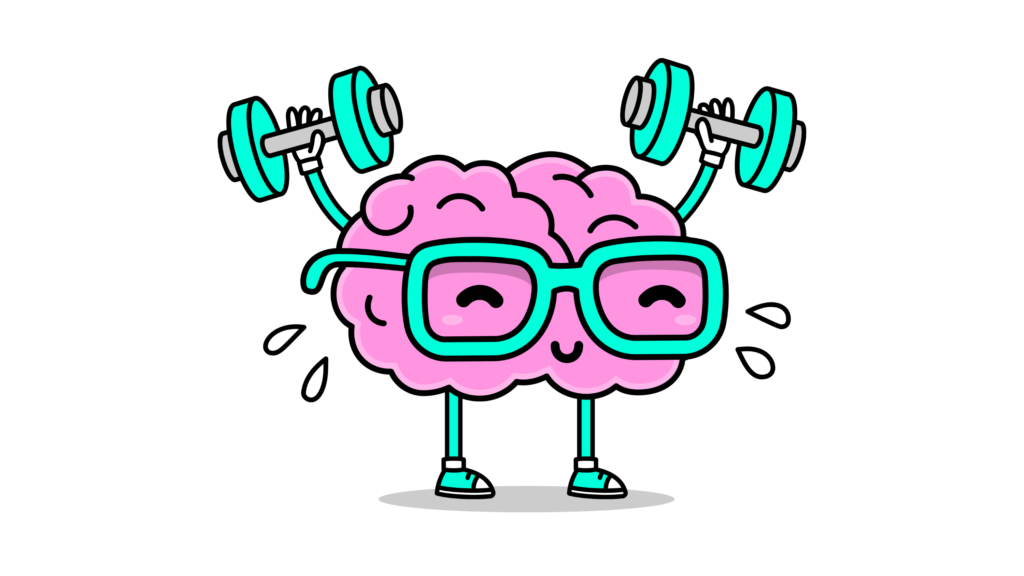How to Supercharge Your Brain’s Operating system
1. The Software Running Your Life’s Operating System
Imagine your body as an incredibly advanced computer system, with your brain acting as the software running the entire operation. Just like a computer needs its software to be optimized and running smoothly for peak performance, your brain needs to be fully charged and firing on all cylinders. After all, this remarkable organ controls everything from your thoughts and emotions to your movements and vital bodily functions.
A supercharged fully optimized brain allows you to tackle mental tasks with laser-sharp focus, make sound decisions, and experience life to the fullest. It’s the command center that enables you to learn new skills, forge lasting memories, and navigate the complexities of the world around you. When your brain is humming along at its best, you’ll feel more productive, happier, and better equipped to tackle whatever challenges come your way.
On the other hand, an uncharged or suboptimal brain can leave you feeling foggy, forgetful, and struggling to keep up. It’s like trying to run the latest software on an outdated computer – nothing works quite right. That’s why maintaining a healthy, well-fueled brain should be a top priority, just like keeping your car’s engine running smoothly.
In this article, we’ll explore the fascinating world of brain optimization, diving into the organ’s electrical properties, dietary needs, and other crucial factors that keep it operating at peak capacity. Get ready to unlock the full potential of your brain’s supercomputer-like abilities!
2. The Brain’s Electrifying Inner Workings

At the heart of your brain’s operations lies an intricate network of billions of neurons – tiny cells that communicate via electrical impulses. These impulses are more than just sparks of electricity; they form the language that allows your brain cells to rapidly share information and coordinate all of your thoughts, sensations, and behaviours.
The key players in this electrochemical conversation are neurotransmitters – chemical messengers that transmit signals from one neuron to another across tiny gaps called synapses. When a neuron fires an electrical impulse, it releases a burst of neurotransmitters into the synapse. Those neurotransmitters are then detected by receptors on the receiving neuron, allowing the signal to be passed along the neural network.

This delicate dance of electrical signals and neurotransmitters orchestrates everything your brain does, from regulating your heartbeat to forming new memories. Even your emotions are tied to this electrochemical symphony, with neurotransmitters like serotonin, dopamine, and endorphins influencing your mood and emotional state.
Keeping this electrical system functioning optimally is essential for sharp cognition, emotional balance, and overall brain health. Factors like diet, sleep, exercise, and stress levels can all impact the efficiency of your neural communications. By addressing these areas, you can help ensure your brain’s electrical connections are firing correctly and your neurotransmitters are in proper supply.
3. Fuel for the Brain’s High-Octane Performance

Your brain is an energy-hungry machine, consuming about 20% of the calories you take in despite making up only 2% of your body weight. And just like a high-performance vehicle, your brain requires the right premium fuel mixture to run at its best.
Certain nutrients act as brain boosters, providing the raw materials necessary for healthy neural function and development. At the top of the list are omega-3 fatty acids, found in foods like fatty fish, walnuts, and flaxseeds. These healthy fats help build and repair brain cell membranes while promoting neural plasticity.
Antioxidants like vitamins C and E also play a vital role in brain health by neutralizing free radicals that can damage brain cells. A colorful diet rich in fruits and vegetables provides a wide array of these protective antioxidant compounds.
The B vitamin family, including B12, B6, and folate, is crucial as well. They help regulate neurotransmitter production and myelin formation, the insulating layer around neurons that increases signal transmission speed.
And let’s not forget minerals like iron, zinc, and magnesium – all are involved in various brain biochemical processes and neural cell communications. Getting adequate amounts from whole food sources like meat, legumes, nuts, and seeds is important.
By incorporating a variety of these brain-boosting nutrients through a balanced whole-food diet, you’re essentially charging your brain with premium fuel. Combine that with proper hydration, and you’ll provide your neural networks with the ingredients needed to fire on all cylinders.
4. Beyond Diet: More Keys to Unlocking Peak Brain Power
While nutrition lays the nutritional groundwork, other lifestyle factors also play a pivotal role in optimizing your brain’s performance. From restorative sleep to invigorating exercise, these activities have a profound impact on your neural operations.
Let’s start with sleep – that crucial period when your brain goes into regeneration mode. During quality sleep, your brain is hard at work forming new neural pathways to solidify memories while flushing out metabolic waste products. Chronic sleep deprivation leaves your synapses firing sluggishly, making it tough to concentrate, learn, and create lasting memories.
Exercise does a brain good too by increasing blood flow and oxygen delivery while stimulating neurogenesis – the creation of new brain cells. Aerobic workouts in particular have been shown to build up gray matter volume in areas involved with memory and cognitive control.
Managing stress is also key, as chronic stress floods your brain with cortisol – a hormone that impairs neural connectivity and shrinks the hippocampus, an area crucial for memory formation. Relaxing activities like meditation, yoga, and spending time outdoors can help keep your body’s stress response in check.
Also, challenging your brain with novel activities promotes neuroplasticity – your brain’s ability to reorganize neural pathways throughout life. Learning new skills, playing brain games, and continually exposing your brain to fresh cognitive challenges helps build new synaptic connections and fortify existing ones.
With strategies like these, you’re essentially upgrading your brain’s hardware and optimizing its operating system for maximum performance. After all, you only get one brain – take good care of it!
5. The High Cost of Neglecting Your Brain’s Needs
While taking steps to optimize your brain pays major dividends, failing to prioritize its care can come with a hefty price tag on your health, productivity, and overall well-being. An uncharged, underfueled brain simply cannot operate at its full potential.
On the cognitive front, poor brain health can lead to issues like brain fog, memory lapses, inability to concentrate, and struggling to learn new information. You may find yourself feeling mentally sluggish and easily distracted. Students and professionals alike will likely see their productivity and job performance suffer.
But the consequences go far beyond just cognition. Emotional regulation, mood, and mental health are also heavily influenced by neural processes. An imbalance of neurotransmitters has been linked to conditions like depression, anxiety, and other psychiatric disorders. You may experience more extreme emotional swings and struggle with stress management.
In the long run, chronic neglect of brain health could even potentially accelerate neurodegeneration and increase risk for conditions like Alzheimer’s and dementia later in life. Lifestyle factors like diet, exercise, sleep, and cognitive stimulation affect neural plasticity and resilience over time.
On a daily basis, an uncharged brain will simply leave you feeling out-of-sorts – more lethargic, forgetful, quick-tempered, and unable to operate at your full mental capacity. It’s like trying to run a resource-intensive program on a low-battery laptop – everything bogs down and lags.
The solution? Make your brain power a top priority by adopting habits that recharge and optimize this life-giving organ. The payoff will be a clearer mind, steadier emotions, and higher-performing life.
Upgrade Your Brain’s Operating System
Now that we’ve covered what’s at stake, let’s dive into some practical strategies to keep your brain humming along in peak condition. With some focused lifestyle adjustments, you can create an ideal environment for your neural networks to thrive.
Start by adopting a brain-healthy diet filled with nutrient-dense whole foods like vegetables, fruits, lean proteins, whole grains, and healthy fats. Minimize processed foods laden with preservatives, excessive salt, and sugar which can impair brain function. And stay well hydrated by drinking plenty of pure, naturally sourced or distilled water.
Why take chances with bottled water that may have questionable purity or storage issues? Invest in a water distiller and enjoy the peace of mind that comes with clean, pure water every time.

Next, make sleep a top priority by sticking to a consistent schedule and getting 7-9 hours per night. Create a relaxing pre-bed routine, limit screen time, and make your bedroom cool, dark, and quiet for optimal sleep conditions.
Regular exercise provides a low-cost but powerful brain boost. Aerobic activity increases blood flow and oxygenation while releasing growth factors that support neurogenesis. Strength training builds lean muscle mass, which boosts metabolism and brain energy levels.
Managing stress is key too. Make time for relaxing activities like yoga, meditation, deep breathing, or just getting outside for fresh air. Chronic uncontrolled stress weakens the neural connections controlling memory, focus, and emotional regulation.
Finally, keep challenging your brain by continually learning new skills, playing brain games, reading, and seeking out novel experiences that forge new neural pathways. An enriched environment exercises your brain’s plasticity and cognitive reserves.
With some discipline and commitment, you can essentially upgrade your brain’s operating system to its highest performance settings. By optimizing these key areas, you’ll experience clearer thinking, sharper focus, improved memory retention, and greater emotional resilience.
Conclusion: Unleash Your Brain’s Vast Potential
The human brain is truly an awe-inspiring machine, with the ability to process staggering amounts of information, create lasting memories, and give rise to conscious experiences. When properly charged and optimized, its capabilities are virtually limitless.
Throughout this article, we’ve explored the intricate electrical circuitry that allows neurons to rapidly communicate. We’ve examined the crucial dietary ingredients that provide energy and building blocks for healthy brain cells. And we’ve looked at other key lifestyle factors like sleep, exercise, stress management, and cognitive stimulation that profoundly impact neural functioning.
By prioritizing these areas, you have the power to create the ideal environment for your brain to operate at its highest level. A well-fed, well-rested, sufficiently challenged brain hums with energy and precision. Cognition is sharper, emotions are more stable, and you simply feel more clearheaded and mentally resilient to tackle life’s demands.
In contrast, neglecting your brain’s needs can deal a punishing blow in the form of brain fog, forgetfulness, emotional turbulence, and longer-term impacts on neural health and cognitive decline later in life. An uncharged brain quite simply cannot perform at its full potential.
The choice is yours – will you take proactive steps to unleash the vast capabilities within the extraordinarily complex organ between your ears? Start by reassessing your daily habits through the lens of brain optimization. Proper self-care for this command center truly is an investment that pays exponential dividends.
Your future self will thank you for prioritizing a fully charged, optimized brain. After all, a finely-tuned neural network is the driving force behind your ability to live your absolute best life.
Summary of key Points From the Article:
The Top Strategies
-
Understand Your Brain’s Neural Networking
– Billions of neurons communicate via electrical impulses
– Neurotransmitters transmit signals across synapses
– This electrochemical system controls all brain functions
-
Fuel Up With Brain-Boosting Nutrients
– Omega-3s build neural membranes and increase plasticity
– Antioxidants protect against free radical damage
– Key minerals enable critical brain biochemical processes
-
Don’t Shortchange Sleep
– Quality sleep allows for new neural pathway formation
– Allows clearing of metabolic waste from wakeful hours
– Aim for 7-9 hours per night for full brain recharge
-
Exercise for a Bigger, Stronger Brain
– Aerobic exercise increases blood flow and oxygenation
– Stimulates growth of new brain cells (neurogenesis)
– Strength training builds lean mass to boost metabolism
-
Keep Stress in Check
– Chronic stress can impair neural connectivity over time
– Can actually shrink memory-related brain regions
– Practice relaxing activities to counteract stress response
-
Continually Challenge and Stimulate Your Brain
– Learning new skills builds fresh neural pathways
– Novelty exercises your brain’s plasticity and flexibility
– Play brain games, read, seek new experiences
-
Consequences of an Uncharged Brain
– Brain fog, forgetfulness, distractibility
– Struggles with emotional regulation and mental health
– Potentially accelerated cognitive decline long-term
Prioritize these research-backed strategies to keep your neural networks energized and firing on all cylinders!



